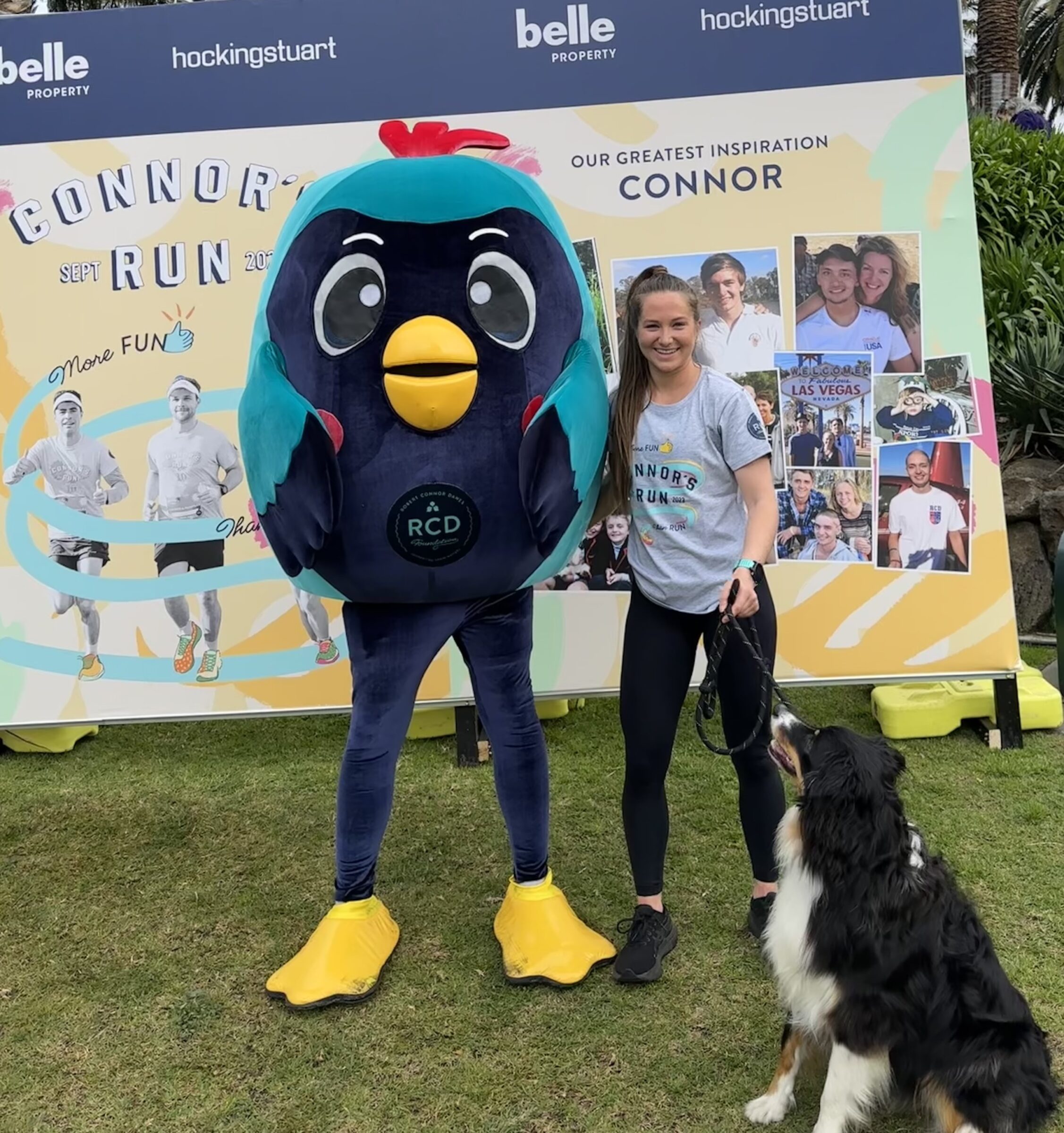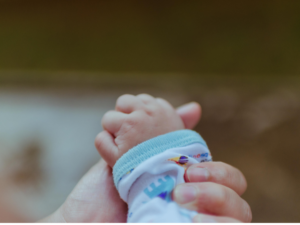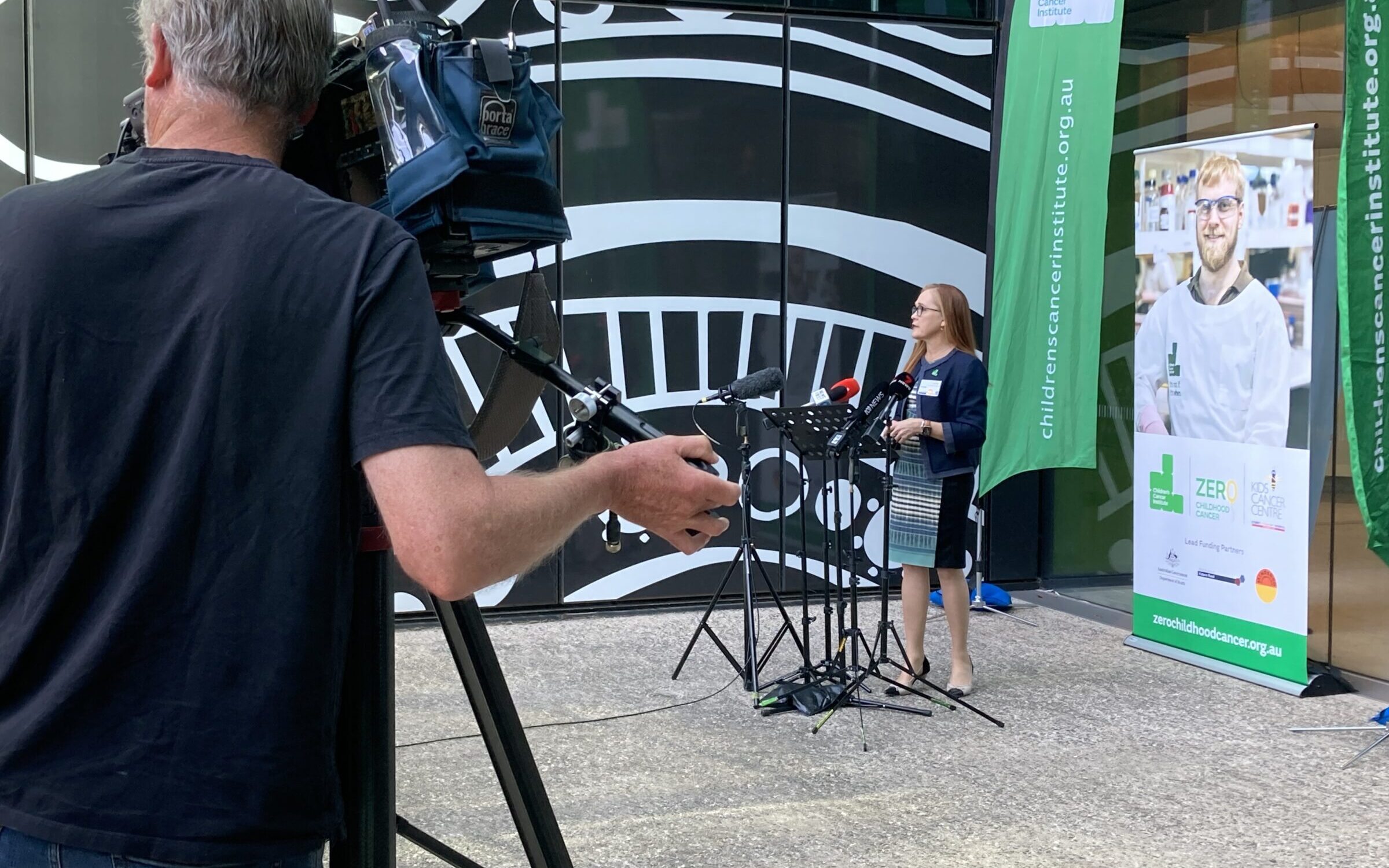
Partners in Paediatric Cancer Trials: The Robert Connor Dawes Foundation
Supporting Paediatric Cancer Trials: The much-needed, and appreciated, role of ANZCHOG’s funding partners
Robert Connor Dawes Foundation
In an ideal world, funding for vital and ethical clinical trials would be a given. There would be enough government money for promising treatments to be tested rigorously in clinical trial situations. Thankfully, whilst there is no bottomless bucket of public funding, there are incredible charities making an enormous impact through their support for clinical trials.
One such ‘force for good’ is the Robert Connor Dawes (RCD) Foundation. Founded ten years ago in memory of her son Robert ‘Connor’ Dawes, Liz Dawes, CEO, and her team have created a legacy that has moved the dial for paediatric brain cancer research.
Collaborating over a number of clinical trials and research projects for the past decade, ANZCHOG is grateful for the ongoing alliance with, and support by, the RCD Foundation. We sat down with Liz to find out more abut how the relationship between the partners works to find better outcomes for children with brain cancer.
“The RCD Foundation is a major supporter of ANZCHOG-sponsored clinical trials aimed at better outcomes for children with brain cancer,” says Liz. “The AIM-BRAIN Project was an initiative we began with ANZCHOG in 2017 as a research study. It is now fully translated into the clinical environment and is having a significant impact in the paediatric brain cancer space. This test, known as DNA methylation profiling, uses the tumour’s genetic material to analyse DNA modification patterns to more accurately diagnose the exact type of brain cancer.”
“The AIM-BRAIN trial, after 5 years and over 400 patients, demonstrated its utility as a reliable and accurate diagnostic tool. It has significantly impacted treatment pathways for children, with up to 15% of cases seeing a change in tumour diagnosis. RCD’s dedication to this trial, along with partnerships with the Federal government and Carries Beanies 4 Brain Cancer, saw the research completed and the test translated into the clinic at the Victorian Clinical Genetics Services. This now means every Australian child with brain cancer can get access to this cutting edge, accredited test to tailor their treatment.”
“Through AIM-BRAIN, we became more aware of the great work ANZCHOG does in clinical trials”, Liz continues. “At that stage, the Foundation was interested in supporting paediatric brain cancer clinical trials but did not have an established mechanism to do so. Upon learning about ANZCHOG’s capabilities, RCD formulated its Clinical Trial Program and committed $1.25 million over five years to support paediatric brain cancer trials in Australia. We partnered with ANZCHOG to deliver this program, and it became part of RCD’s contribution to the Australian Brain Cancer Mission.”
Reflecting on the journey, Liz Dawes shares the wisdom gained over the years, “In the early days, we were advised to back the race, not the horse. This approach of not aligning with a single institution or researcher has really served us well and allowed the Foundation to expand nationally and have a real impact in the field, as demonstrated with the translation of the AIM-BRAIN Project into the clinic.”
Looking ahead to the next ten years, Liz Dawes envisions a more hopeful future for children with brain cancer. “We hope that through the continued evolution of precision medicine and development of better treatments with fewer side effects, children with brain cancer will not only have better survival rates but also better quality of life,” she shares optimistically.
The RCD Foundation has been a driving force in the brain cancer research space, raising millions of dollars to support critical research initiatives and the development of the clinical community. But how do they choose which projects to support or initiate? Liz explains, “We have a research strategy which was formulated in consultation with key leaders in the field in Australia and overseas as well as our legacy ambassadors. It has taken into consideration the funding, scientific and medical landscapes and identified areas in which we believe we can have an impact. We target specific areas of the research spectrum, tackling significant aspects of paediatric brain cancer. Working closely with the best and brightest researchers in these areas we have developed large project initiatives. In this sense we are very proactive. Our career grants are embedded in such initiatives to leverage our investment as much as possible. We also work closely with other funders and governments to attract co-investment. In addition, we run an open, competitive, travel grant scheme for paediatric brain cancer researchers to facilitate knowledge exchange at conferences and other scientific forums.”
To sum up, Liz leaves us a poignant message, “We will never stop until there are better treatments and a cure for paediatric brain cancers. Our research is the only way we will beat this terrible disease.”
Thank-you RCD Foundation for your support and vision, ANZCHOG is forever appreciative of the partnership we’ve formed together to achieve better outcomes for children and adolescents with brain cancer.
ANZCHOG is a non-profit organisation committed to ensuring Australian and New Zealand children receive world-class cancer care. We are the peak professional body for paediatric oncologists and health professionals who care for children with cancer, spearheading national initiatives to enhance clinical care through communication, research, networking and education. We are also the national cooperative clinical trials group for childhood cancer, actively working with trial consortia around the globe to ensure Australian and New Zealand children have the opportunity to access the latest promising cancer treatments.
ANZCHOG news:


